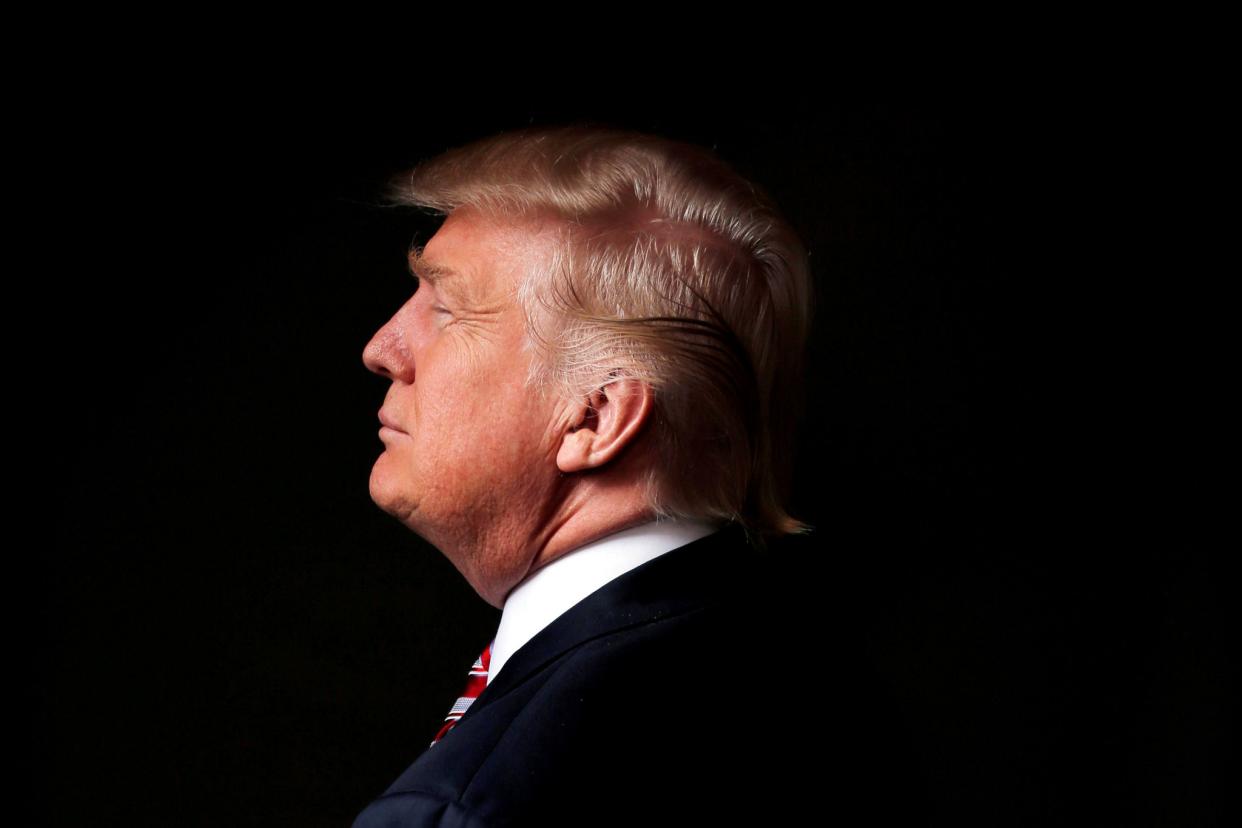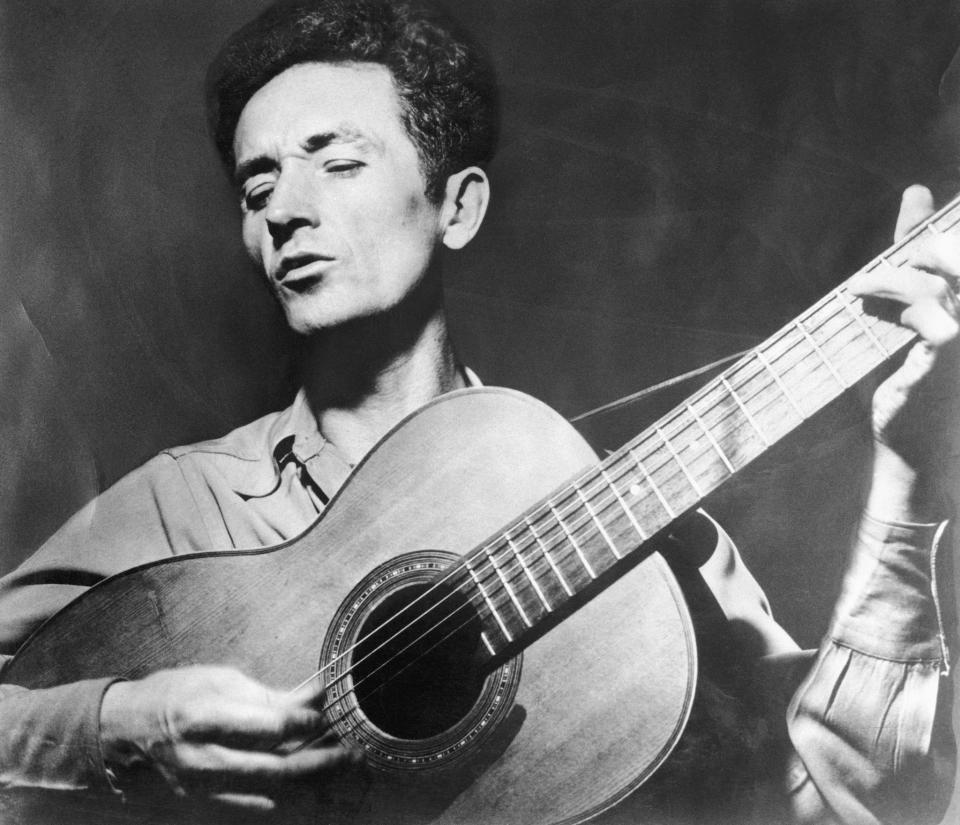Essay: Why Trump will be good for the arts

Since the election, creative people have been feeling a little short of oxygen. Trump’s victory feels, for them, like a refutation of the world cherished by artists and actors, dancers and writers — a liberal world, tolerant, diverse, built on sharing and compassion. With Trump, we get the first president ever featured as a recurring character in professional wrestling, a P.T. Barnum from a post-literate vacuum. His troll army works day and night to mock “snowflakes,” oversensitive liberals who melt when confronted with a challenge to their existential worldview. Suddenly the Holy Trinity of Colbert, Trevor and Oliver isn’t so funny, and we’re baffled by Michigan. Who in the arts can explain the election of Trump? How do we account for the viral paranoia of Alex Jones, #Pizzagate and Putinism?
Take a deep breath, people. This will be good for the arts, even if it doesn’t feel that way.
There is plenty of evidence that fear is good. It stimulates, motivates, and gives focus. Fear gives the body and mind a kind of adrenal cleanse, a cocktail of cortisol and norepinephrine that sets the heart racing and floods your capillaries with oxygen and glucose. The amygdala lights up, looking for threats.
Matthew B. Crawford, author of “Shop Class as Soulcraft,” wrote that creativity is what you do “when the rules run out, or there are no rules.” That’s where we are right now. Feeling endangered drives us to seek deep meaning. And for that, only the most powerful cultural tools will serve. Those are, in order, poetry, the novel, theater, aspirational cinema and long-form television. Today’s source of our despair is tomorrow’s creative fodder.
This relationship seems contradictory — aren’t bad times for society bad times for artists? No, they aren’t. Art is born from overcoming obstacles, and the harder the times, the more Americans have depended on artists. Think of Woody Guthrie writing a song every day as he crisscrossed the Columbia River Valley. New York was broke, filthy and shrinking in the 1970s, and we got punk and Basquiat. The Reagan ’80s birthed the AIDS activism that today looks like a prophetic start on social justice and marriage equality.

I first noticed the phenomenon in Chile, where the long dictatorship of General Augusto Pinochet had turned folk singers and poets into national tribunes. Censorship of Chilean journalists left novelists to grapple with the country’s grief. Ariel Dorfman was inspired by the terror of those years to write his greatest plays. But when Pinochet fell, democracy eventually brought with it the collapse of poetry magazines, the return of the mundane.
Then, just one day after the Sept. 11 attacks, I noticed doggerel scrawled by a finger on a dusty window near Ground Zero. Someone needed to write it. By the end of that horrible week in 2001, poems by E.E. Cummings were taped to light posts around Greenwich Village. Acclaimed poets like Breyten Breytenbach and Seamus Heaney responded to those events with their pens, but so did millions of amateurs worldwide.
Sept. 11 is a sobering example — poetry, the deepest of emotional wells, was precious in that moment of national grief. But “everything has changed” turned out to be an empty promise. Irony never did die. No great novel or film emerged from that day; in “Fahrenheit 911,” Michael Moore turned his camera off rather than show what actually happened that morning in lower Manhattan. Instead, America was told to “go shopping,” and we did. The longest war in American history was most visible at home through Yellow Ribbons on gas guzzlers. The Trump real estate fantasy of gold-plated luxury has always reflected the stupefying values of commercialism, an invitation not to ask any nagging little questions.
But as a minority-vote president, Trump can be asked a million nagging little questions. What is legitimate opposition? Where is the line for free speech? How is equality defined, and made real? Who is American? These questions are inspiring, not threatening, and will endure even if President Trump doesn’t serve out his full term — he is, after all, the oldest president to ever assume the office, is shadowed by ties to Russia, and could always pull a Palin, quitting in a blamestorm of frustration. But for artists, Trumpism matters more than Trump: They fear a full-term agenda of Duck Dynasty values and anti-intellectual inventions.
Nothing could make Broadway feel more relevant and creative. The president-elect’s tweetwar with members of the cast of “Hamilton” shows the phenomenon in action. Trump tried to silence and intimidate people who see themselves as fair-minded champions of equality. His demand for deference and conformity only provoked the artists.
Authoritarian presidents can do real harm, as in Turkey, where President Recep Erdogan has arrested hundreds of writers in a harsh crackdown on his liberal and secular opponents. But Erdogan, a conservative Islamist who declared in 2011 that “Sometimes a book is more dangerous than a bomb,” has only provoked a literary renaissance. Book sales in the country are increasing dramatically, publisher Cem Erciyes told the New York Times, because people read more in troubled times. And thinkers of all kinds have been pushed to “take shelter in the world of books. The book is the oldest media — its wisdom, its accumulation of knowledge, is thousands of years old.”
Trump is an elected president, not a dictator. But he has single-handedly shrunk the lifespan of facts to zero. The post-truth world of his followers won’t be overturned by the National Endowment for the Arts. But the long search for truth — elusive, imperfect, debatable — is what artists do best. In a divided climate, artistic truth will eventually have an effect, even a crucial one. If that sounds like a job for a greater writer than any alive today, then that’s how writing works — you start in again, tomorrow, to become a greater writer than you were yesterday. Literature is not an escape, it is a tool for summoning clarity out of chaos.
Trump will inevitably sow the seeds of his own opposition. That’s how America works. We will now meet the impulse for more and better films and novels, webcasts and performance art, Broadway shows and small-town orchestras. A painter’s brush may offer us a more brutal and necessary honesty than anything appearing from Washington. Because we are scared, because it matters, we can achieve new understandings.
Personally, I won’t be looking for a Hollywood how-to on saving the republic, or cartoonists declaiming a legislative agenda. But new circumstances demand new expressions. In “Reality Hunger,” David Shields argues that however stupefying, sickening, infuriating or embarrassing America becomes, our “meager imagination” can and must expand to meet that challenge. The Trump administration isn’t going away, nor is the chance for artists to respond to it.
_____
Patrick Symmes is the author of The Boys from Dolores: Fidel Castro’s Schoolmates From Revolution to Exile and is teaching at the Santa Fe Writer’s Workshop in Havana on March 2.


